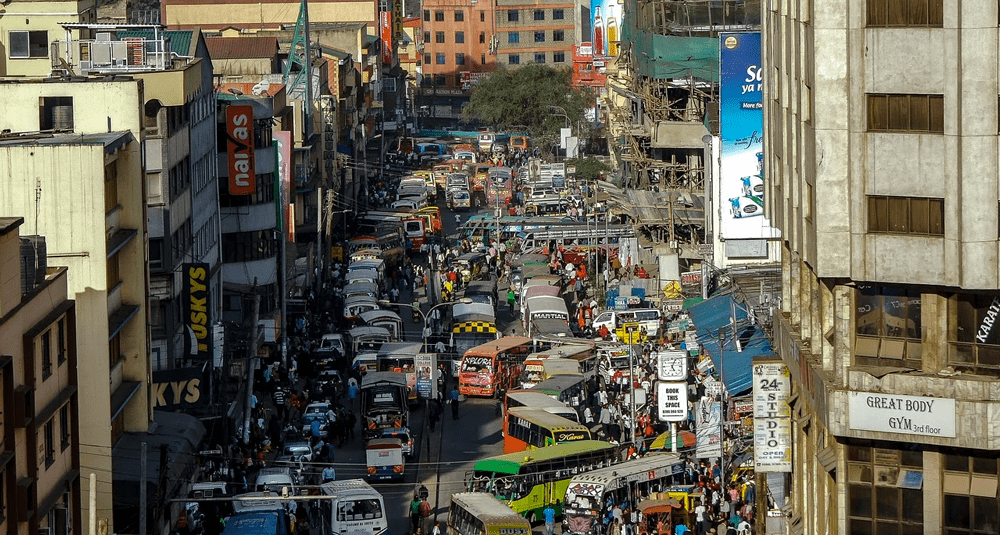What is the capital of Kenya?
Last Updated:
Nairobi is the capital of Kenya, an East African country. Founded in 1899, Nairobi quickly became a nerve center of Kenyan economy, politics and culture. With an ever-growing population, the city is one of the largest and most dynamic on the African continent.
Nairobi was founded in 1899 as a railway depot on the line between Mombasa and Uganda. The name Nairobi comes from the Masai expression Enkare Nyrobi, meaning the place of cool waters.
The city rapidly prospered under British colonial rule, becoming the capital of the colony and protectorate of Kenya in 1907. Nairobi developed as an administrative and commercial center, attracting European settlers as well as Indian and African workers.
After Kenya’s independence in 1963, Nairobi continued to develop, becoming a modern, cosmopolitan city. It has played a key role in the history of post-colonial Kenya, hosting many major political and economic events.
Located just a few kilometers from the city center, Nairobi National Park is one of a kind. Home to a wide variety of wildlife, including lions, giraffes and rhinos, it offers a safari experience within easy reach of the city.
This museum features a vast collection of objects, fossils and exhibits on the history, culture and biodiversity of Kenya. It is particularly well known for its exhibits on the first hominids discovered in the region.
Located in the home of the author of Out of Africa, the museum offers an insight into Karen Blixen’s life and Kenya’s colonial history. The house and surrounding gardens have been preserved in their original state.
For an authentic cultural and commercial experience, the Maasai market is a must. Here, visitors can buy traditional handicrafts, jewelry, fabrics and other souvenirs made by local artisans.
Nairobi is a vibrant cultural center with numerous theaters, art galleries, museums and festivals. The city is also home to a thriving music scene, with genres ranging from traditional African music to contemporary pop and hip-hop.
Kenya’s economic hub, Nairobi is home to numerous national and international companies, banks, non-governmental organizations and United Nations agencies. The information and communication technology sector is booming, and Nairobi is nicknamed the Silicon Savannah due to its expanding technological ecosystem.
Nairobi is a major educational center with several renowned universities, including the University of Nairobi, Kenya’s oldest and largest. The city is also home to numerous research institutes, notably in the fields of agriculture, health and environmental sciences.
Nairobi is a hub of innovation and technology in Africa. Initiatives such as the iHub, a coworking space for technology start-ups, and the development of Konza Technopolis, a technology city currently under construction, illustrate Nairobi’s commitment to innovation.
Like many large African cities, Nairobi faces challenges associated with rapid urbanization, including traffic congestion, pollution and infrastructure management. Efforts are underway to modernize the city and improve its inhabitants’ quality of life.
Nairobi is the gateway to Kenya’s safaris and national parks, attracting millions of tourists every year. The city itself offers a wide variety of cultural, historical and natural attractions.
Nairobi is the capital of Kenya, a dynamic city in constant evolution. With its rich historical heritage, cultural attractions, role as an economic and technological hub and urban challenges, Nairobi is a vibrant reflection of Kenya’s growth and potential. The city continues to attract visitors from all over the world, offering a unique experience blending modernity and tradition.
You may also be interested in
geography

What is the capital of Kenya?
Answer
Kenya's capital is Nairobi. Founded in 1899, Nairobi is the country's economic, political and cultural center, famous for its national park and vibrant city life.